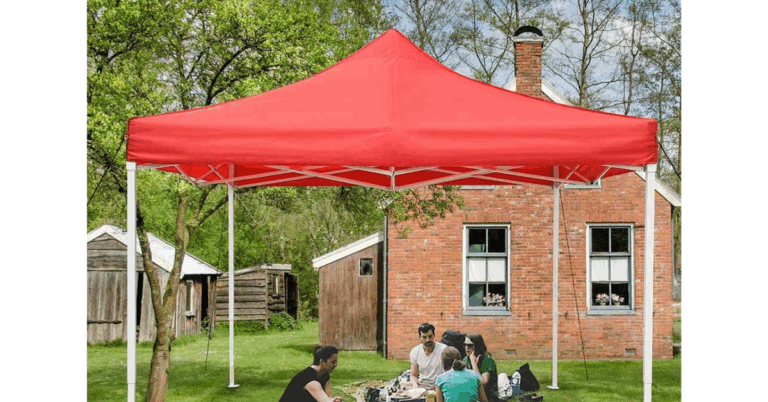CRM For Commercial Real Estate: Transforming Property Management and Sales
In the highly competitive commercial real estate market, managing client relationships, property listings, and sales pipelines efficiently is crucial. CRM For Commercial Real Estate has become an indispensable tool for brokers, property managers, and real estate firms looking to streamline operations and enhance client engagement. By adopting a dedicated CRM system tailored to commercial real estate needs, businesses can gain a competitive edge through better organization, automation, and data-driven insights.
Whether you manage office buildings, retail spaces, industrial properties, or multi-family complexes, CRM for commercial real estate offers the technology and functionality to optimize your business processes.
What is CRM For Commercial Real Estate?
CRM for commercial real estate is specialized Customer Relationship Management software designed specifically to handle the unique challenges of the commercial property industry. Unlike generic CRMs, this software is customized to manage complex deal cycles, multiple stakeholders, property portfolios, and lease management.
This CRM solution consolidates all your client interactions, property details, lease agreements, and sales activities into one centralized platform. This provides real estate professionals with a comprehensive view of their pipeline, helping them nurture leads, close deals faster, and maintain long-term client relationships.
Key Features of CRM For Commercial Real Estate
A good CRM for commercial real estate includes features that address the distinct demands of property management and sales:
Property and Portfolio Management
The ability to track detailed property information, lease terms, availability, and maintenance schedules is essential. A commercial real estate CRM allows users to organize and update their property portfolios in real-time.
Deal Tracking and Pipeline Management
Commercial real estate deals often involve long sales cycles and multiple parties. A CRM system helps visualize the entire deal pipeline, from prospecting to closing, ensuring no opportunity is overlooked.
Contact and Relationship Management
Building strong relationships with tenants, investors, brokers, and landlords is fundamental. The CRM stores contact histories, communication logs, and important documents to facilitate personalized and timely communication.
Lease and Contract Management
Managing leases and contracts within the CRM helps reduce paperwork and prevent missed renewals or deadlines. Automated reminders and document storage make lease management more efficient.
Marketing Automation
Automated marketing campaigns targeted to specific segments, such as prospective tenants or investors, increase engagement. Integrated tools enable email marketing, drip campaigns, and performance tracking.
Reporting and Analytics
Commercial real estate professionals rely on data to make strategic decisions. CRM reporting features provide insights into occupancy rates, deal velocity, revenue forecasting, and client behavior.
Mobile Access and Integration
With on-the-go property showings and client meetings, mobile access to CRM data is crucial. Integration with tools like email, calendars, document storage, and accounting software enhances productivity.
Benefits of Using CRM For Commercial Real Estate
Implementing a CRM for commercial real estate delivers multiple benefits that drive growth and efficiency:
-
Streamlined Operations: Centralized data management reduces manual work and errors.
-
Improved Client Service: Real-time access to client and property information enables faster responses and personalized service.
-
Higher Deal Conversion Rates: Tracking prospects closely and automating follow-ups results in more closed deals.
-
Enhanced Collaboration: Teams can share information easily, breaking down silos between leasing, sales, and property management.
-
Data-Driven Decisions: Analytics empower better portfolio management and investment strategies.
How to Choose the Best CRM For Commercial Real Estate
Selecting the right CRM for commercial real estate depends on several factors unique to your business model:
Industry-Specific Features
Ensure the CRM supports commercial real estate workflows such as lease tracking, deal syndication, and property management.
Customization and Scalability
Your CRM should adapt to your specific processes and scale as your portfolio grows.
User Experience
An intuitive interface increases adoption rates among brokers and property managers.
Integration
Look for CRMs that integrate with your existing software tools like accounting systems, marketing platforms, and listing services.
Security and Compliance
Commercial real estate data is sensitive; select a CRM with strong security protocols and compliance certifications.
Common Challenges Solved by CRM For Commercial Real Estate
CRM for commercial real estate helps address frequent challenges in the industry:
-
Disorganized client and property data causing missed opportunities
-
Inefficient communication with prospects and tenants
-
Difficulty tracking lease renewals and contract deadlines
-
Lack of visibility into sales and leasing pipelines
-
Ineffective marketing efforts resulting in low lead conversion
With a well-implemented CRM, these issues become manageable and improve overall business performance.
Best Practices for Implementing CRM For Commercial Real Estate
To maximize the benefits of your commercial real estate CRM, consider these best practices:
-
Define your goals clearly before selection and implementation
-
Engage your entire team during the onboarding process
-
Clean and standardize your existing data before migration
-
Provide ongoing training and support to users
-
Regularly review CRM data and workflows to optimize performance
Future Trends in CRM For Commercial Real Estate
The evolution of CRM for commercial real estate is driven by emerging technologies and changing market demands. Key future trends include:
-
Artificial Intelligence and Machine Learning: Automating lead scoring, predicting client needs, and offering personalized property recommendations.
-
Advanced Analytics: Integrating market data and predictive analytics for smarter investment decisions.
-
Mobile-First CRM Solutions: Enhancing mobile apps for brokers and managers in the field.
-
Integration with IoT and Smart Building Technology: Allowing real-time monitoring of property conditions within the CRM.
-
Enhanced Collaboration Tools: Facilitating communication across distributed teams and external partners.
Staying ahead by adopting these innovations will ensure commercial real estate businesses remain competitive and efficient.
FAQs About CRM For Commercial Real Estate
What makes CRM for commercial real estate different from other CRMs?
CRM for commercial real estate is tailored to handle specific needs such as lease management, property portfolios, multi-party deals, and long sales cycles, which are not fully addressed by generic CRM systems.
How can CRM for commercial real estate improve deal closing rates?
By tracking every interaction, automating follow-ups, and providing a clear sales pipeline overview, commercial real estate CRM helps agents focus on the right leads and avoid missed opportunities.
Is CRM for commercial real estate suitable for small firms?
Yes, CRM solutions are scalable and can benefit small and medium-sized firms by providing organization, automation, and better client insights.
Can CRM for commercial real estate integrate with property listing services?
Many commercial real estate CRMs offer integration with MLS, CoStar, LoopNet, and other listing platforms to keep property data synchronized.
How secure is data in CRM for commercial real estate?
Reputable CRM providers employ encryption, multi-factor authentication, and compliance with data protection regulations to keep your commercial real estate data safe.
Conclusion
CRM for commercial real estate is transforming the way brokers, property managers, and real estate firms operate by offering industry-specific tools that enhance efficiency, client relationships, and decision-making. From managing complex property portfolios to closing deals faster, commercial real estate CRM solutions provide the infrastructure needed to succeed in a competitive market.
Choosing the right CRM tailored for commercial real estate will help you stay organized, automate repetitive tasks, and gain valuable insights into your business. With powerful reporting, mobile access, and seamless integrations, CRM systems are a vital investment for sustainable growth and profitability in the commercial real estate sector.







